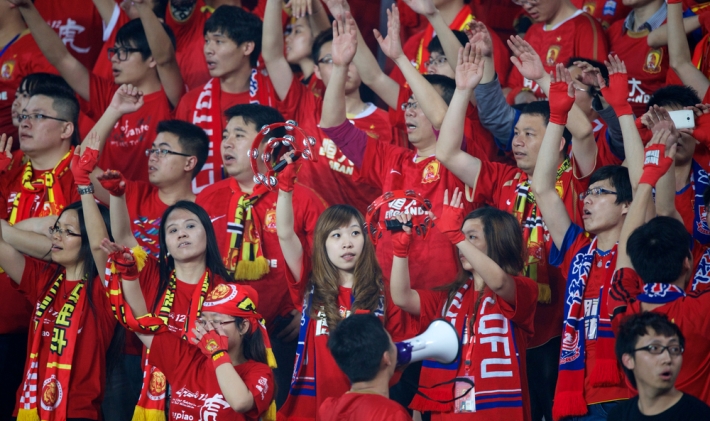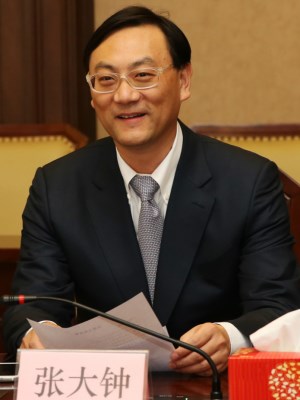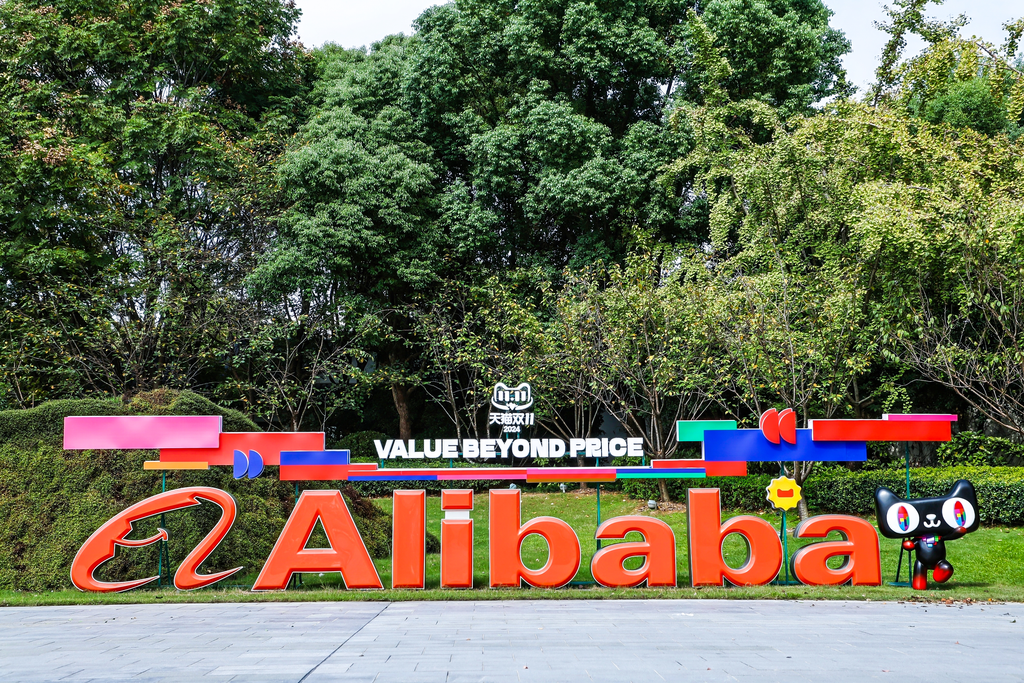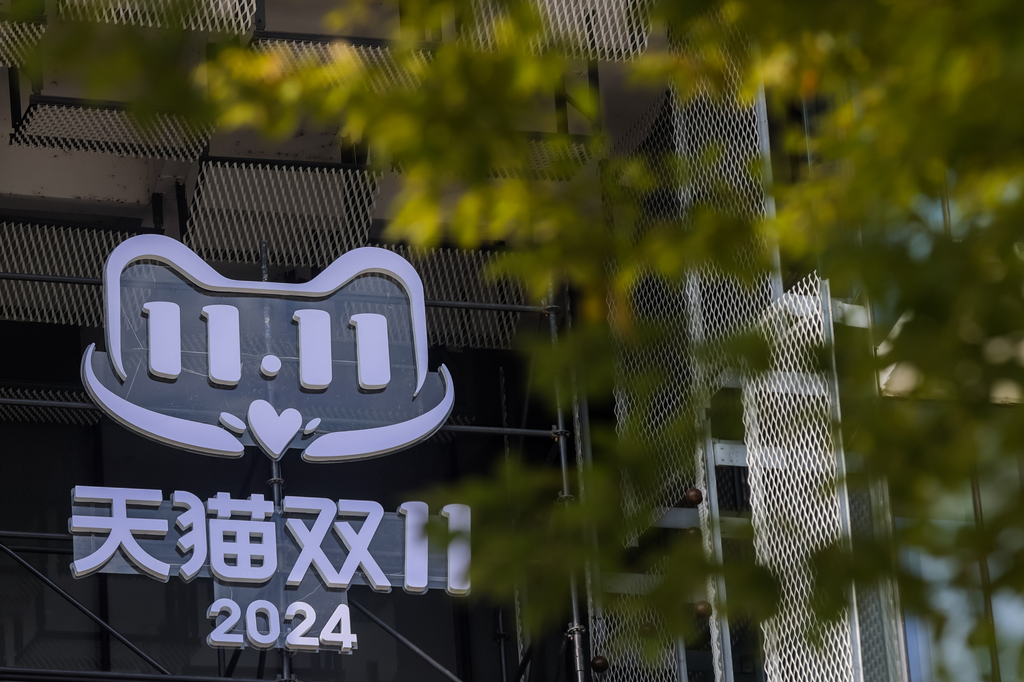
Beijing has big plans for China’s sports industry.
The government wants the market to reach $800 billion in 2025 from the $62 billion it generated last year. To that end, policymakers two years ago pushed through a plan that cut taxes for private companies operating in the sector, cut some of the red tape that slowed business and encouraged both domestic and foreign investment. It didn’t take long for those investors to take notice.


There’s still much more to come, according to Zhang. In the following Alizila Q&A, he tells us the story of how he came to head Alisports, the strategy behind the deals done so far and what’s next for the company:
How did the concept of Alisports come about? Why did Alibaba Group choose this particular sector to invest in at this particular time?
Actually, from investing in Guangzhou Evergrande to working with Kobe [Bryant] and Bayern Munich, Alibaba Group has been paying attention to sports for a long while. Early last year, I resigned from Shanghai Media Group, and [Executive Chairman] Mr. Jack Ma came to me, asking me if I was interested in creating a sports business with Alibaba. Vice Chairman Joe Tsai and CEO Daniel Zhang also supported me a lot. Now both Joe and Daniel are board members of Alisports. After preparing for more than half a year, we announced the launch of Alisports last September. So I would like to think it evolved naturally.
In Alibaba Group, we take health and happiness as two main strategic directions for the company over the next 10 years, and sports is the golden cross point for the two directions. Jack Ma hopes that Alibaba will become an enterprise with 102 years of history. If a person wants to live that long, then of course he needs to be healthy and happy. Therefore, we can’t achieve this goal without sports. Sports is a conscious business choice for Alibaba, but it’s also an inevitable decision. We do so not just for the enterprise’s internal health and happiness, rather our bigger mission is to make all Chinese people healthy and happy. This is the objective of Alisports.
Could you offer a bit of your career history before joining Alisports? We know you were credited with bringing National Basketball Association games to the mainland. How did that happen and what other sports-related deals have you done?
I founded Shanghai Cable TV Sports Channel in 1993, which was the first professional sports channel in China. During which, I also established some solid working relationships with many sports organizations such as the NBA and English Premier League. I tried to use media to operate sports clubs, so I guess I could be dubbed a pioneer in the sports industry. For example, we were title sponsors of the Shanghai men’s and women’s volleyball teams. The two clubs won the national titles for nine and five consecutive times, respectively, at that time. We also acquired Xu Genbao‘s 02 football club [which was later taken over by Shanghai Shenhua FC], and most of the players later became the backbone of Chinese football. I am a man who cherishes friendship. I maintain a good relationship with many people that I met years ago.
Afterwards, I set up about 10 companies including OCJ [the first home-shopping station in China], SiTV [Shanghai Interactive Television, which was a digital TV, video on-demand and interactive TV business], SMGBB [a network station that was delivered over broadband] and BesTV [the first Internet Protocol television business model in China, and in 2011 the first new-media stock to list on the Shanghai Stock Exchange].
I introduced the NBA to BesTV in 2009. The challenge was that you had to handle more than 10 games simultaneously with live production and commentary work, which was like doing Olympics coverage. Technically speaking, there was no media company that was competent enough to do so at that time, and it would cost $1.2 million per year for satellite transmission via fiber. Many people thought it was undoable. But a man who loves sports will never feel that way. So I made the decision to go ahead without hesitation. My production team overcame a lot of difficulties, making the impossible possible. In that team, almost everyone was a sports fanatic. I think this is the spirit we get from sports, namely, never say something is impossible when facing a challenge.
Alisports has said it wants to leverage digital technology to transform China’s sports industry. What exactly would that look like? And what’s the short-term and long-term plan for the company?
This is our long-term strategy: Alibaba has built a base platform for China’s digital economy, a full economic ecosystem and range of services, which is important to the growth of that digital economy and the country’s economy as a whole. Now Jack Ma wants to leverage that for sports in China, and so we’ll use those resources to, we hope, to transform Alibaba’s 407 million users into sports participants.
In the past the government utilized its administrative power in the traditional way to push the sports economy, but for us it’s a different story now. We want to utilize different methods and different tools, for example the Internet, to give the sports economy a boost. We’ll do that through e-commerce, allowing consumers to buy sporting goods online or engage with teams and clubs like Bayern or Real Madrid on Tmall Global, respectively, to encourage their participation. Then we have a number of deals we’ve signed with international sports organizations that further bolster the profile of sports in China. Indeed, we hope to promote the development of sports in China through cooperation with international sports organizations.
Speaking of which, could you talk about the deals and partnerships you’ve done so far, including the FIFA Club World Club deal, executed thru Alibaba E-Auto, the broadcasting deal with the National Football League, and the recent memorandum of understanding with the International Boxing Association? Why were these deals chosen over other sports or leagues you may be considering, especially when rough sports like American football and boxing lack a significant fan base in China?
First of all, I think the 28 Olympics sports and many others, as long as they are upbeat and healthy sports, are conducive to physical and mental health. We especially hope to cultivate the spirit of teamwork and an unyielding attitude through sports like American football.
Regarding the cooperation with either FIFA or IBA, what they actually value is the strength of China’s Internet. They want us to leverage our data to find out which Chinese cities love what kinds of stars and teams, what their consumption habits are, etc., so they can better reach those potential fans. For us, we want to work with them to introduce top international sporting matches to China and learn how to run and operate a professional game. That way we can cultivate our own sports soil, so to speak.
These deals so far have been international in scope. But what about amateur sports enthusiasts in China rather than sports fans? Does Alisports have a plan for tapping into the growing health and fitness market in China?
We also especially want to try to convert Alibaba consumers into sports lovers. Down the line the consumption or money spent on sports will be much more than other product categories. So we hope to set up our strategic relations with different associations governing different sports around the world to position ourselves to take advantage of that trend. You can expect us to have a lot of close relations and cooperation with associations, clubs, star players and athletes around the world.
We also focus on people from the grassroots level. Earlier, we held the first City Football Champions Cup, concentrating on the development of nonprofessional football, to serve a wide range of football fans and organize high-quality football tournaments. And, in cooperation with Shanghai Sports Bureau, we would like to provide more sports opportunities for our sports lovers. This year we will work with the SSB on the second Shanghai Public Sports Games, so that sports will no longer be available just to professional athletes. In addition, we have a number of projects for the general sports crowd, and such programs are under discussion and implementation and yet to be made known. But I believe we will give our sports lovers a satisfying answer.
The slogan of Alisports is to make sports simple. That is to say, we encourage everyone to participate in sports. That’s why we want to build such a base platform, through our strengths in big data, to make it simple for ordinary people to enjoy sports. We hope that everyone’s dream of being a sportsman can come true. We know not everyone can be a professional athlete, however, but we think sportsmanship is a spiritual quality, and everyone can realize his dream of being a sportsman.
What other deals and partnerships should we expect to see from Alisports over the coming year? Are there particular sports that you hope to add to your portfolio?
As I said, Olympic sports and others are good for physical and mental health. As long as it is positive and upbeat, we are willing to provide services in these areas. We cannot do everything by ourselves, so we need to provide a platform. One way to do that is by partnering with sports leagues. We like to engage with all people, not just one team, one person or one subject. We also signed contracts with two Chinese sports companies recently, Shengkai Sports and OCEANS Sports. Both of them have a ticketing business, and we provide them a platform to drive tickets sales and to design and develop related sports tourism products because they official ticketing rights to specific events. This is how we hope to enhance the competitive value of our partners.
Also, before the Chinese New Year, we met with football super agent Jorge Mendes. He and his client [former Chelsea manager] Jose Mourinho came to our office and had a very pleasant conversation with me. They are very interested in the way we engage fans, and we’re hoping to improve the profit model behind China’s football clubs beyond tickets and sponsors by learning from them.
Last question, could you talk about your new logo?






